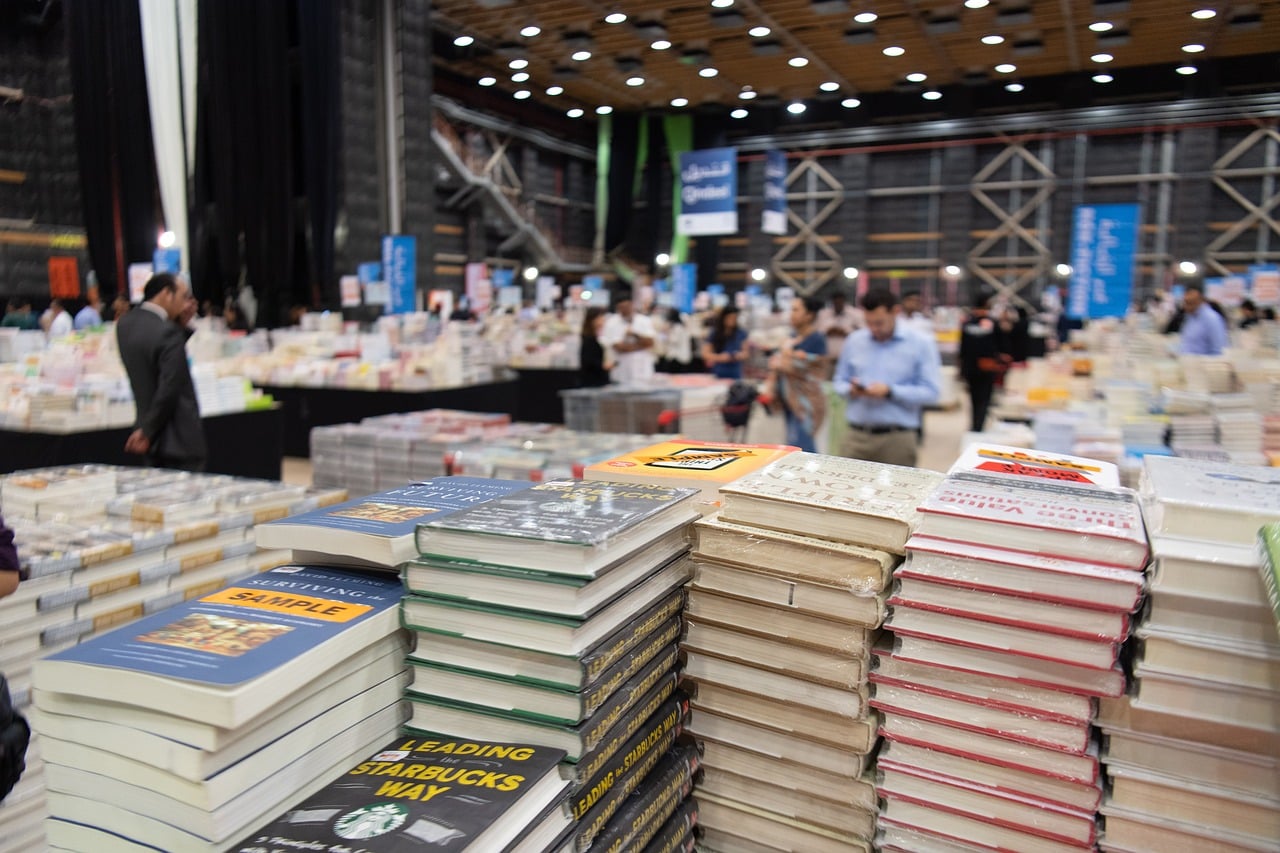
Reading lovers often enjoy a tour of a book fair.
Reading is the process of apprehension of certain types of information contained in a particular medium that are transmitted through certain codes , such as language . That is, it is an action through which certain symbols are translated for understanding .
You can opt for visual , auditory and even tactile codes, as is the case with Braille , a method used by the blind. It should be noted that there are reading alternatives that are not necessarily supported by language, as is the case, for example, with pictograms or notation .
Different views on reading
The mechanics of reading involve the implementation of several processes. Physiology , for example, offers the possibility of analyzing and understanding the reading capacity of the human being from a biological perspective (studying the eye and the ability to fix vision).
Psychology , for its part, contributes to knowing the process that is put into operation in the mind when someone reads, both to interpret symbols, characters and images and in the association of the word with what that term represents.
From visualization to cerebration
Reading basically consists of four steps: visualization (a discontinuous process, since the gaze does not slide continuously over the words), phonation (oral articulation, conscious or unconscious, through which the information passes from sight to speech), hearing (the information passes to the ear) and cerebration (the information reaches the brain and completes the understanding process).
There are various techniques when starting a reading , which allow the way of reading to be adapted to the objective that the reader wishes to achieve. Generally, the aim is to maximize the speed or comprehension of the text. Since these goals are contrary and conflict with each other, the ideal reading involves a balance between the two.

A reading club is an environment that encourages the exchange of opinions about various works.
Benefits of reading
Reading offers many advantages for those who take it as an essential habit in their lives. Among some of the riches it produces are the enrichment of the internal universe and the understanding of other realities; the acquisition of knowledge that could be useful to us; the improvement of our communicative capacity (especially if an oral reading is carried out); and a collaboration with the development of the capacity for analysis, problem solving and partnerships . Furthermore, we must not forget that it is a source of entertainment suitable for all ages, sexes and social conditions. The secret to being passionate about reading lies in knowing how to find what adapts to our desires, interests and needs.
For reading to be profitable, it is very important that we first know the purpose of said activity, what is the reason why we want to read; Once we have resolved this we can look for materials that allow us to achieve this objective and prepare ourselves for a satisfactory reading.
Reading strategies consist of a series of propositions for better use of the activity. For example, if you want to read to acquire knowledge and study, a reading strategy will divide different ways of approaching reading that allow us to better adhere to the knowledge. These forms are exploratory, fast, deep reading, rereading and review . If they are also combined with certain study techniques (underlining, consulting the dictionary, taking notes, etc.), reading will be much more enriching and the concepts will be assimilated more deeply.

Many young people approach reading through comics and graphic novels.
Classification according to type
There are two types of reading: mechanical reading (quick, without delving into the ideas, used to have a general overview of a topic, regardless of new concepts that may arise and the structure of the text. In this type of reading, reader is passive because he reads to avoid getting bored and systematically without internalizing anything) and comprehensive reading (detailed, trying to capture as much information as possible, to grasp concepts and achieve an analytical vision on the subject. Fundamentally, the critical interpretation of what is read is sought. In this case the reader is active because he questions, criticizes and analyzes.
In turn, these readings include literal reading (understanding the contents as they appear in the text, for example to memorize a poem), deductive reading (capturing the content of what you have read and analyzing it to know if it is correct. or not) and syntactic reading (discern the main idea and separate it from the secondary ones in each paragraph. That is, capture the main theme and be able to prepare a summary of the text).
Attitude is a fundamental aspect of reading, as you may have assumed according to the description of mechanical and comprehensive reading. The reader is the protagonist and is the one who decides what type of results will be obtained from that activity. It should be noted that concentration and interest are essential to have a profitable reading.
Reading comprehension
It should be noted that reading comprehension is the process that each reader develops when reading, where they construct ideas, feelings and analysis based on what they read and using their prior knowledge in contrast to what said reading offers them. The reader's interaction with the text is the central axis of comprehension, and therefore essential for efficient and rich reading.
From some points of view, education as it is conceived today (current educational systems) does not favor good reading. Students do not read about what interests them, but rather what is imposed on them, and reading developed under these conditions is hardly profitable. Remember, of all the texts you have had to read in your student life, how many and which do you remember? And those that you have read for leisure? Possibly you can tell in detail the plot of all the novels you read, because you chose them freely and no one imposed an obligation on you to read them. There lies the true use of reading, in reading what is of personal interest. Freedom should be closely linked to reading, because we are what we read and we cannot be forced to read (be) something (someone) that we do not want.
A pleasant activity
Reading should be a pleasant activity. If a person manages to discover an author that is interesting to them, every time they come across books by this writer (whether in print or e-books on electronic reading devices) they will have a good time.
A reader may feel captivated by a particular literary genre or literary style . It is possible to choose biographies, science fiction stories, chronicles, essays , poetry or mystery novels, for example. There are even those who are more attracted to journalism and read magazines or newspaper articles.
The important thing is always to give reading a chance. A library can be a good place to start dabbling in this practice, although it is also possible to go to a bookstore and review the range of available literature.
